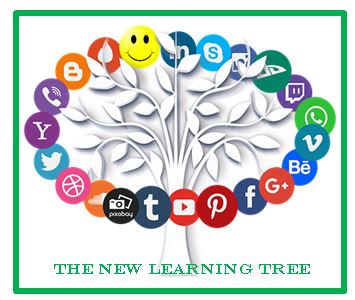Digital is the new reality.
The world our students live in is a digital world. They have always had an environment which includes mobile phones, computers and the internet. They are connected in ways we never were. Technology is no longer a luxury item, it has become a necessity for work and in life (Dotterer, Hedges & Parker, 2016, pp. 58). To produce well rounded students who are capable of facing the challenges of the future work environment, we need to teach students how to embrace and flourish using the digital technologies and environments now available to them.
When starting this course I had little idea of what digital citizenship and digital learning environments (DLEs) were (Cornwell, 2018). I now know the importance of teaching digital citizenship and creating learning experiences in the digital world. Through course readings and my own research I can see that creating a DLE can open up a new world of learning for students. It allows teachers to bring the outside world into the classroom and allows students to be part of global community. However, creating effective DLEs require vision and planning and the support of the school leadership team.
As teachers it is important that students use technology effectively and safely (Common Sense Education 2014, October 28). We know that students are online – nearly one third of my stage three students (aged 11-12) are using social media. Therefore, teachers in the primary school sector, need to teach digital citizenship, giving students the tools to navigate their online world, before their digital footprint becomes too large (Hicks, 2015) and potentially damaging. Dotterer, et al (2016, pp. 59) notes the power of an online presence. A good digital footprint can be advantageous and teachers need to embrace this positive power. It is important to develop skills in students that help them make good choices and like with everything, it is important to teach them young. This is particularly important in schools, like mine, where the parents may not have these skills themselves and therefore cannot provide effective guidance.
I currently work in a school where teachers are actively incorporating digital technologies into their learning experiences, but they are not yet ‘brave’ enough to step outside the classroom walls. As a Teacher Librarian I want to bring the outside world in! I want my school to work on a common vision of what our DLE should look like and to develop and implement policies (besides departmental issued ones) to support teachers, students and learning. Having now completed this subject (and keen to continue learning about the concepts raised) I see myself as perfectly placed to work with the executive in preparing our school to embrace digital citizenship and DLEs.
The interest in using technology ‘better’ is there. The results of a recent survey I conducted showed that teachers are very eager to learn more about digital technologies. The Principal and other executives have expressed an interest in harnessing my learning to develop policies and improve our digital learning experiences.
I plan on continuing my learning in this area. This course has shown me the importance of connecting with other likeminded educators throughout the world and I want to connect my students with others in positive ways as well. I will continue the relationships I developed during my collaborative learning module assignment, as well as using social media platforms to grow my personal DLE. I plan to actively advocate and steer my school towards a future that embraces all the digital (i.e. real) world has to offer. The future is exciting and scary and brimming with potential and I look forward to learning with my students how to best use the digital world to our advantage.
References
Common Sense Education (2014, October 28). Why schools should teach digital citizenship. [Video File]. Retrieved from https://www.youtube.com/watch?v=2Xxu7VW4hQc
Cornwell, G. (2018, March 2). Citizenship in a digital age [Blog Post] Retrieved from https://thinkspace.csu.edu.au/gillian/2018/03/02/citizenship-in-a-digital-age/
Dotterer, G. Hedges, A, & Parker, H. (2016) Fostering digital citizenship in the classroom. In The Education Digest. Retrieved from https://net-ref.com/white-paper-fostering-digital-citizenship-in-the-classroom/
Hicks, K. (2015, July 9). Teacher’s guide to digital citizenship. In Edudemic Retrieved from http://www.edudemic.com/teachers-guide-digital-citizenship/
Watanabe-Crockett, L. (2017). 5 reasons why you should be teaching digital citizenship. In Global Digital Citizen Foundation. Retrieved from https://globaldigitalcitizen.org/5-reasons-teaching-digital-citizenship


